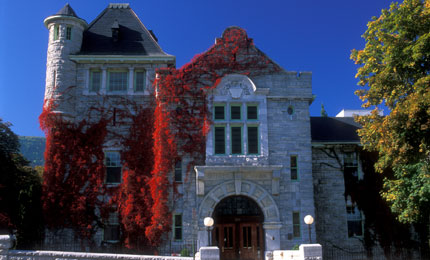River Talks — Indigenous man challenges BC Government
For the next several weeks, history is being made at the Nelson, B.C. courthouse, as an indigenous man named Rick Desautel sets the love of his ancestors against the logical machinery of the provincial government.
While this case arguing for the right of an “extinct” man to hunt in his territory may not seem to have much bearing on the Columbia River Treaty, it will likely ripple out across the profitable system of dams operating in the upper Columbia Basin.
Desautel belongs to the Arrow Lakes tribe, or, the Sinixt. Their traditional territory has, since 1846, spanned the international boundary. Before that, it was just their homeland, stretching from present-day Revelstoke, B.C. to Kettle Falls, Washington.
The profitable upper Columbia River was once a free-access highway for Sinixt sturgeon-nosed canoes. The federal government declared the Sinixt “extinct” in 1956, only a few years before they signed the Columbia River Treaty.
Today, dams divide the river. The politics of blame muddies its water.
Sitting in the courtroom, I listen as the B.C. Crown lawyer argues that the tribe abandoned its territory during the era of mining frenzy and intense settlement, in the latter half of the nineteenth century.
The foundation for their argument: the Sinixt voluntarily left B.C., took up farming in the U.S. with enthusiasm, and cheerfully severed their ongoing interest in aboriginal hunting rights.
It’s a classic case of blaming the victim.
The Crown riffles through its paper. Binders filled with paper line the lawyer’s desk. More paper sits in file boxes on a shelf nearby. Paper is stapled, distributed and entered into evidence. It’s a face-off between the simple truth of history and the complexities of meeting a series of legal precedents.
All that paper is an attempt to prove that Desautel does not have an inherent aboriginal right to hunt in B.C. as an American tribal member.
The international boundary is in fact a recent demarcation in the context of 5,000 or more years of human history along the upper Columbia. It doesn’t make any sense to find fault with the indigenous people, when, in the end, no one asked them about the invisible line severing their territory, nor were they provided with a reserve of any kind in B.C. until the bulk of the land had been claimed or purchased. I provide details of how the government failed this indigenous tribe in my new book, A River Captured, now available in the U.S. and Canada.
When the two countries signed the Columbia River Treaty in 1961, the tribes of the Inland Northwest were not consulted.
They were only beginning to rise up out of poverty and educate themselves within the new system. The U.S. Endangered Species Act was not yet in place to protect salmon and other threatened species in a river system that had fed them for millennia. The tribes were only beginning to successfully test their inherent legal rights.
More than 50 years later, things are different, and thank heaven for that. Tribes are pressing Treaty negotiators for “ecosystem function.” They also want to return some natural flows to the Columbia and its major tributaries. They want fish passage around Grand Coulee and Chief Joseph dam, to bring salmon to the “Canadian” portion of the Columbia.
In Canada, the Okanagan Nation Alliance has already coordinated a successful sockeye restoration in the valley of their traditional home.
It can be done.
In many of the conversations I have with Basin residents about the Treaty north of the border, I register universal approval, regardless of ethnic origin, for the principles of restoring river flow and bringing back the fish. People want a healthier river, just as Desautel wants to bag the occasional deer or elk in his ancestral home.
Nothing could be better for the “Canadian” Columbia than a restoration of indigenous rights.
Stay tuned as the trial continues.
Or, better yet, take in some history yourself (basement level, Nelson Courthouse, Monday – Friday until late October except Thanksgiving, with a break for lunch from 12:30-2 p.m.).


























Comments